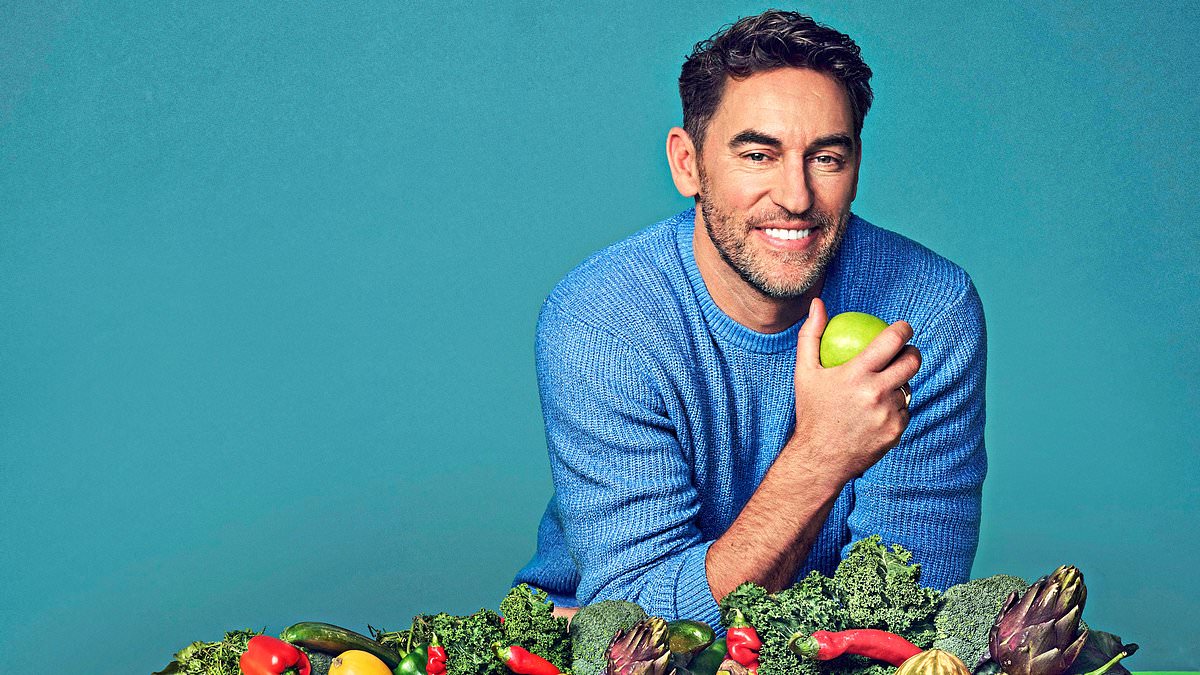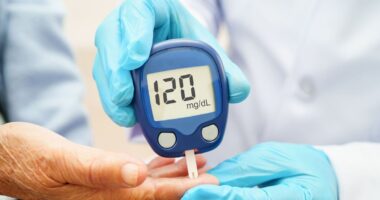It is one of those vegetables that most people either love or hate.
Beetroot, you may be surprised to learn, has also, at times, divided some scientists who have debated its benefits.
That’s because beetroot is high in nitrates and nitrites — molecules made from nitrogen and oxygen that are also found in red meat, and blamed for the ill effects of foods like bacon and ham.
It is thought that the compounds in the processed meat react with other molecules in the body to increase the risk of cancer.
In my work as a nutritionist, clients often ask me whether this means nitrate-containing veg, like beetroot, pose a risk too. In fact, I tell them, the truth is quite the opposite.

Rob Hobson is an award-winning nutritionist. His book, Unprocess Your Life, is filled with recipes and ideas to help you reduce your intake of processed foods

One of the reasons beetroot can give your body a boost is because it’s particularly high in folate. Folate, also called vitamin B9, is mainly found in dark leafy greens, beans, peas and beetroot
Nirates and nitrites are risky in some forms of meat because, when combined with chemicals in the body, they create molecules called N-nitroso compounds (NOCs), which can increase the risk of rectal tumours forming during digestion.
But in vegetables, they enter the body where they are converted to nitric oxide — a substance which can dilate blood vessels, reducing the risk of high blood pressure and therefore, heart disease.
The high nitrate content in beetroot may also help you run, swim and cycle faster.
Research has shown that large quantities of the compound can boost oxygen efficiency. This means that for a given amount of effort, athletes can perform at a higher level with less oxygen.
Andy Jones, Professor of Applied Physiology from the University of Exeter; investigated the effects of beetroot on sport performance.
He found the nitrates in the beetroot improve blood flow to the lungs and muscles, which resulted in faster delivery of oxygen.
That means you can potentially work harder without feeling the strain.
In one 2009 study led by the University of Exeter, researchers found drinking beetroot juice boosts your stamina.
The study was conducted on eight men aged between 19 and 38. They were given 500ml per day of organic beetroot juice for six consecutive days before completing a series of tests, involving cycling on an exercise bike.
On another occasion they were given a placebo drink of blackcurrant cordial for six consecutive days before completing the same cycling tests.
After drinking beetroot juice the group was able to cycle for an average of 11.25 minutes, which is 92 seconds longer than when they were given the placebo.
However, eating beetroot raw seems to have a stronger affect at lowering blood pressure compared to when the vegetable has been cooked or pickled.
That’s because the cooking process reduces the levels of nitrates and antioxidant
The benefits of beetroot are far greater than that of its nitrate content, however.
One of the reasons beetroot can give your body a boost is because it’s particularly high in folate.
Folate, also called vitamin B9, is mainly found in dark leafy greens, beans, peas and beetroot.
There is about 109micrograms of folate in half a pack of beetroot (100g) — that’s about half your daily recommended intake.
It plays a significant role in the production of red blood cells.
Adequate folate levels help prevent anaemia, which is characterised by fatigue, weakness, and shortness of breath.
The vitamin is also crucial for the synthesis and repair of DNA. This is essential for cell division and growth, particularly during periods of rapid growth such as pregnancy and infancy.
In fact, the NHS recommends women take 400 micrograms folic acid tablet every day before they are pregnant and up to 12 weeks of pregnancy.
That’s because it is vital for the proper development of the foetus.
It helps prevent neural tube defects (NTDs), such as spina bifida and anencephaly, which are serious birth defects of the brain and spine.
The high folate levels in beetroot also help to keep cardiovascular disease at bay.
Folate helps to regulate the amino acid homocysteine levels in the blood.
Elevated homocysteine is associated with an increased risk of cardiovascular diseases, as it can damage the lining of your arteries.
Beetroot also contains natural pigments called betalains, which have powerful anti-inflammatory properties.
Because chronic inflammation is linked to various conditions such as obesity, heart disease and liver disease, these pigments in beetroots may impact positively on our overall health.
Researchers at Queen Mary University of London examined the effects of daily beetroot juice high in inorganic nitrate on nitric oxide levels and inflammation.
They conducted a study with 114 healthy volunteers, splitting them into two groups.
One group received a typhoid vaccine to induce systemic inflammation, while the other group had a cream applied to create localized inflammation through a small blister.
Participants drank 140ml of beetroot juice each morning for seven days, with half consuming nitrate-rich juice and the other half drinking juice with the nitrate removed.
Those who consumed the nitrate-rich beetroot juice exhibited higher levels of nitric oxide markers in their blood, urine, and saliva.
This group also had lower levels of inflammatory monocytes, and the remaining monocytes were more anti-inflammatory.
The nitrate-rich juice appeared to restore the function of the endothelium, the cell layer lining blood vessels, which is typically impaired during inflammation.












